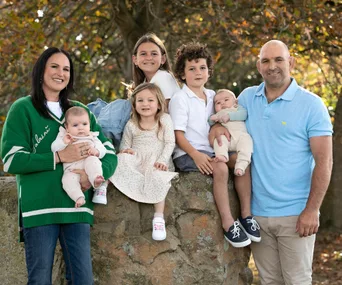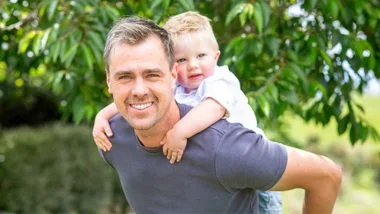If your child is expressing worry and concern about their safety in the event of an earthquake, this is a good time to work as a family to put things in perspective and plan ahead. Here are some tips for dealing with your child’s response to the recent earthquake in Canterbury:
Be available to talk about what is on your child’s mind – don’t just dismiss their concerns. Listen to their worries and validate them by talking about earthquakes and sharing history and knowledge about what they are and why they happen.
If your child isn’t great at expressing themselves, yet you know they are worried, encourage them to write or draw pictures about earthquakes. This will then give you an opportunity to discuss what they have written and drawn. Just talking about it can often make a child feel less worried.
Make sure your child has the facts, and be informed yourself. When was the last time an earthquake occurred in your area and what is the likelihood of it happening again? Make an effort to find out this information and share it with your family.
offer a solution for their concerns by discussing what you will do as a family if disaster strikes. Do you have an emergency plan? If not, what will it be? Things to discuss might be where to shelter in an earthquake, flood or storm. Who is responsible for checking essentials and creating a survival kit?
How do you turn off gas, water and electricity? How will you contact each other during an emergency and how do you contact Civil Defence? What will happen to pets? All these questions will prompt good discussion and your child’s role in helping to answer them can give them confi dence.
Keep things in perspective. Earthquakes are a reality for many parts of New Zealand, but reassure children that in most cases you will be prepared if they come. Keep an ear out for what your children are hearing and repeating and check that it is accurate, correcting the information if necessary. Children can be easily scared by classmates at school who have a flair for exaggeration.
Don’t ridicule your child or allow them to be teased by other members of the family for being concerned. For many children, seeing pictures of natural disasters on TV can really unsettle them. Put in the time with that child to help them feel less worried and make it okay in your family for that to be the case.
Watch the news together so that you can help explain things they don’t understand about the coverage, and calm them down if they are getting upset. often all a child will need is a hug or a reassuring arm around their shoulders and the knowledge that no matter what, you will always be there to take care of them.
Resist the urge to overreact yourself. If you fi nd that you are deeply upset by something which has happened as a result of the earthquake, try to keep that from your kids. If you are upset, be proactive about what you can do to help and make a positive difference, such as donating to a disaster-relief charity.
Talk to your child about how to move on from worrying. Being concerned about an earthquake is fi ne, but it shouldn’t be something that occupies their mind 24/7. Talk to them about putting the concern away in an imaginary shoebox on the shelf or in a folder on their desk. They can get it out and have a look at it sometimes, but then it should go back and they can get on with doing things they enjoy.
Be positive. You can’t tell your child that an earthquake will never affect your family, but you can point out that with good planning you will be safe. No-one died in the Christchurch earthquake and the community is coping admirably.
Spend time on these websites with your children: www.geonet.org.nz which monitors earthquake activity; and www.eqc.govt.nz, which has information on emergency











